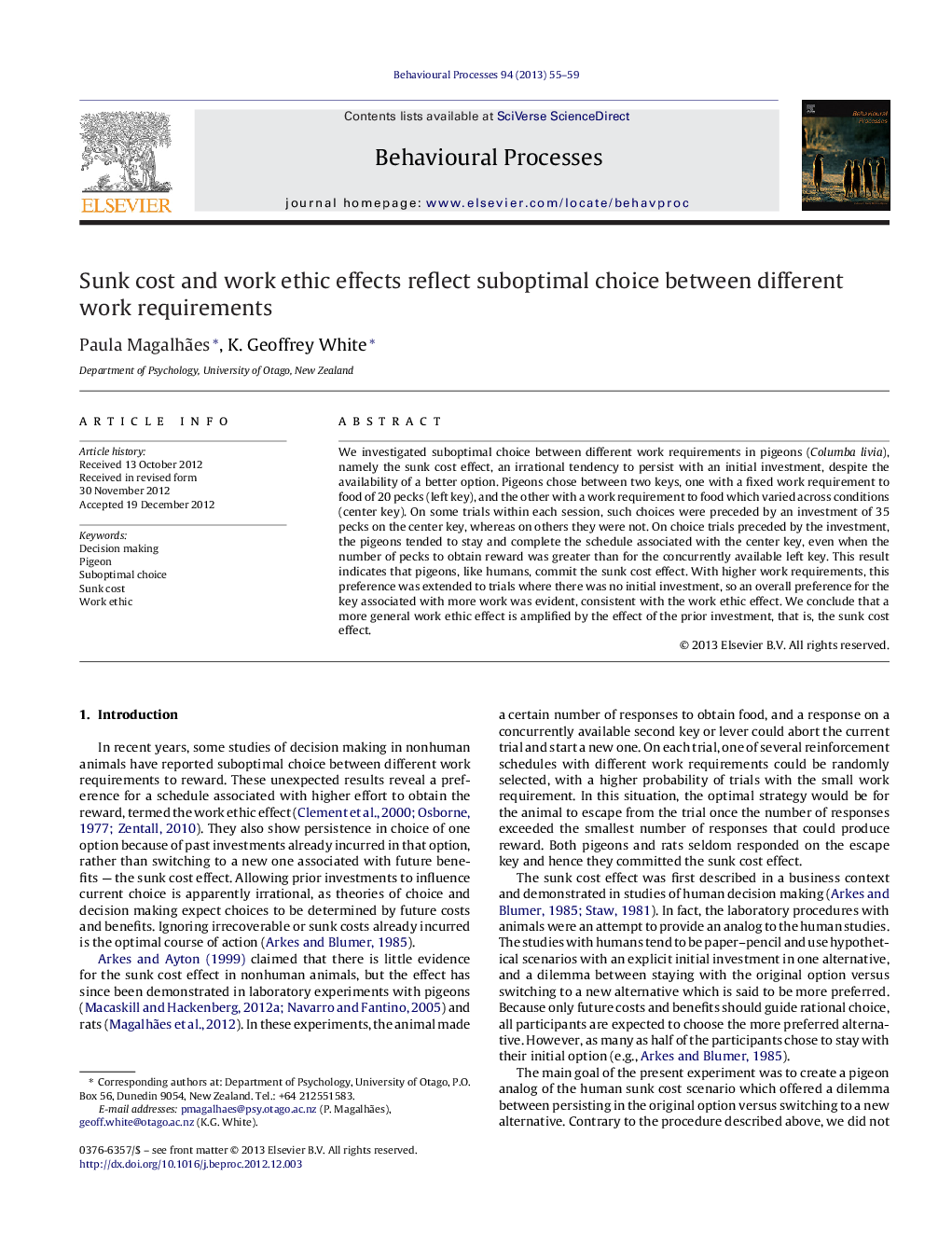| Article ID | Journal | Published Year | Pages | File Type |
|---|---|---|---|---|
| 2426909 | Behavioural Processes | 2013 | 5 Pages |
We investigated suboptimal choice between different work requirements in pigeons (Columba livia), namely the sunk cost effect, an irrational tendency to persist with an initial investment, despite the availability of a better option. Pigeons chose between two keys, one with a fixed work requirement to food of 20 pecks (left key), and the other with a work requirement to food which varied across conditions (center key). On some trials within each session, such choices were preceded by an investment of 35 pecks on the center key, whereas on others they were not. On choice trials preceded by the investment, the pigeons tended to stay and complete the schedule associated with the center key, even when the number of pecks to obtain reward was greater than for the concurrently available left key. This result indicates that pigeons, like humans, commit the sunk cost effect. With higher work requirements, this preference was extended to trials where there was no initial investment, so an overall preference for the key associated with more work was evident, consistent with the work ethic effect. We conclude that a more general work ethic effect is amplified by the effect of the prior investment, that is, the sunk cost effect.
► We demonstrated the sunk cost effect in the pigeon. ► We examined choice between options with and without prior investment. ► There was a preference towards the option associated with prior investment. ► We suggest that the sunk cost effect is part of a more general work ethic effect.
